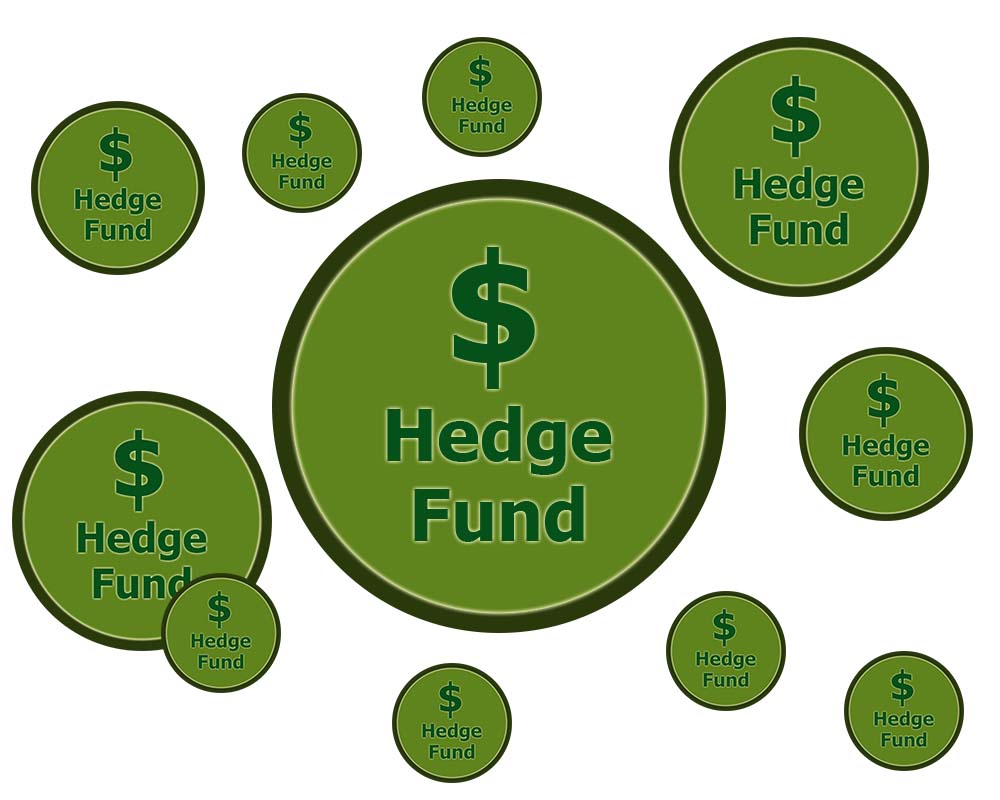At first glance, a hedge fund is a very complex and misunderstood concept. But it’s crucial to not only read about them but also understand them thoroughly. In this article, we’ll delve into what hedge funds are, explore their nature, strategies, companies, and funds, and identify the leader in this field of alternative investments.
Hedge funds are investment funds. They raise capital from investors and employ various strategies to generate income from this activity. Hedge funds belong to the realm of alternative investing. They differ from traditional investment funds in that they have more flexibility in their approach. While the returns from these funds are higher than traditional investment funds, so are the risks.
Hedge Fund Companies
These companies are led by experienced finance professionals who develop strategies and make management decisions. The size of future income and risk will depend on these strategies. Therefore, before using the services of a specific company, it is necessary to consider all the pros and cons. These companies are also referred to as hedge fund firms or managers. They vary in their structure, with each being unique and contributing to the spectrum with its vision and original strategies.
Key functions of hedge fund firms
- Investment Management
- Research and Analysis
- Trading and Execution
- Risk Management
- Investor Relations
- Compliance and Regulatory Oversight
Hedge Fund Strategies
The most important feature of hedge funds is their utilization of a wide variety of unique strategies. These strategies are aimed at identifying market inefficiencies and seizing opportunities. Let’s consider these strategies.

Long/Short Equity
Hedge funds aim to profit not only from rising stock prices but also from falling ones. They utilize both long and short positions, buying stocks they believe will increase in value and selling those they anticipate will decrease according to their analysis.
Global Macro Hedge Fund Strategy
Global macro hedge funds invest by analyzing geopolitical events and trends at the macroeconomic level, such as changes in interest rates or fluctuations in currency exchange rates.
Event-Driven
Event-driven funds capitalize on corporate events such as mergers, acquisitions, bankruptcies, or restructurings to generate returns. They aim to profit from the price movements resulting from these events by taking positions in the affected companies’ securities.
Distressed debt
This strategy is employed by hedge funds that invest in distressed companies to generate future income. They may also acquire distressed bonds or loans, typically at a discount, with the same objective.
Arbitrage Hedge Fund Strategy
This strategy aims to identify discrepancies in asset prices.
Quantitative
This strategy involves the use of statistical analysis and historical data. They employ mathematical models and algorithms to identify desired outcomes.
Fixed Income
Fixed income hedge funds focus on trading assets backed by mortgages, including government and corporate bonds. They also utilize strategies such as relative value, credit arbitrage, or interest rate trading.
Long-Term Value Hedge Fund Strategy
This is a strategy that identifies undervalued securities that have the potential to significantly increase in value in the future. Hedge funds conduct fundamental analysis to identify such companies.
Top Hedge Funds
These are the top hedge funds managed by the most successful top managers. Their reputation is backed by numerous years of successful operation. Among the most successful are:
Renaissance Technologies (Hedge Fund)
One of the most famous and successful companies that utilizes mathematical calculations and models in its operations. It’s not surprising, as its founder is the mathematician James Simons.
Bridgewater Associates
Another giant company that utilizes macro-investing strategies in its operations and forecasts. This company was founded by Ray Dalio in 1975. He is now known as a successful leader who employs innovative approaches in his work, continuously conducts research, and manages assets totaling more than $150 billion.
Citadel
This company was founded in 1990 by Kenneth Griffin. He manages assets totaling more than $35 billion. Additionally, in its operations, the company employs fixed income, quantitative, credit, and equity strategies.
D.E. Shaw & Co.
This is a global investment and technology development company. It employs quantitative and systematic trading strategies in its operations. Founded in 1988 by David E. Shaw, it currently manages assets totaling more than $50 billion.
Millennium Management (Hedge Fund)
This company specializes in multi-strategy hedge funds. Founded by Israel Englander in 1989, it now manages assets totaling more than $50 billion. In its operations, it utilizes various strategies depending on the asset.
Two Sigma Investments
This company employs a quantitative approach based on asset data. It was founded by David Siegel and John Overdeck in 2001. In their operations, they utilize cutting-edge technologies.
AQR Capital Management
This is a global investment management firm founded in 1998. The investment firm operates several hedge funds and proprietary alternative investment strategies. It also manages assets worth more than $100 billion.
These are just a few examples of the largest and most successful hedge funds selected based on their reputation. In reality, there are many more hedge funds, but not all of them are as successful.
The Biggest Hedge Fund in the World
There are many large hedge funds, but the largest of them all is Renaissance Technologies. This fund sits at the top and effectively manages assets worth tens of billions of US dollars. In its operations, the fund utilizes mathematical models, calculations, and algorithms, which are further processed by analysts. It’s no wonder, as this fund was founded by mathematician James Simons.
Conclusion
Understanding the significance of hedge funds is crucial for both beginners and professionals to navigate and continually evolve. Thanks to their flexibility, innovative strategies, and talented managers, these funds hold a significant position in the world of alternative investments.
Pingback: Інвестиції: все про інвестиції - Світ фінансової грамотності
Pingback: Alternative Investment Funds (AIFs) - Stock 'n bulls
Pingback: Alternative Investment Funds (AIFs) - Stock 'n Investments
Pingback: Alternative Investing: most popular assets and analytics - Stock 'n Investments